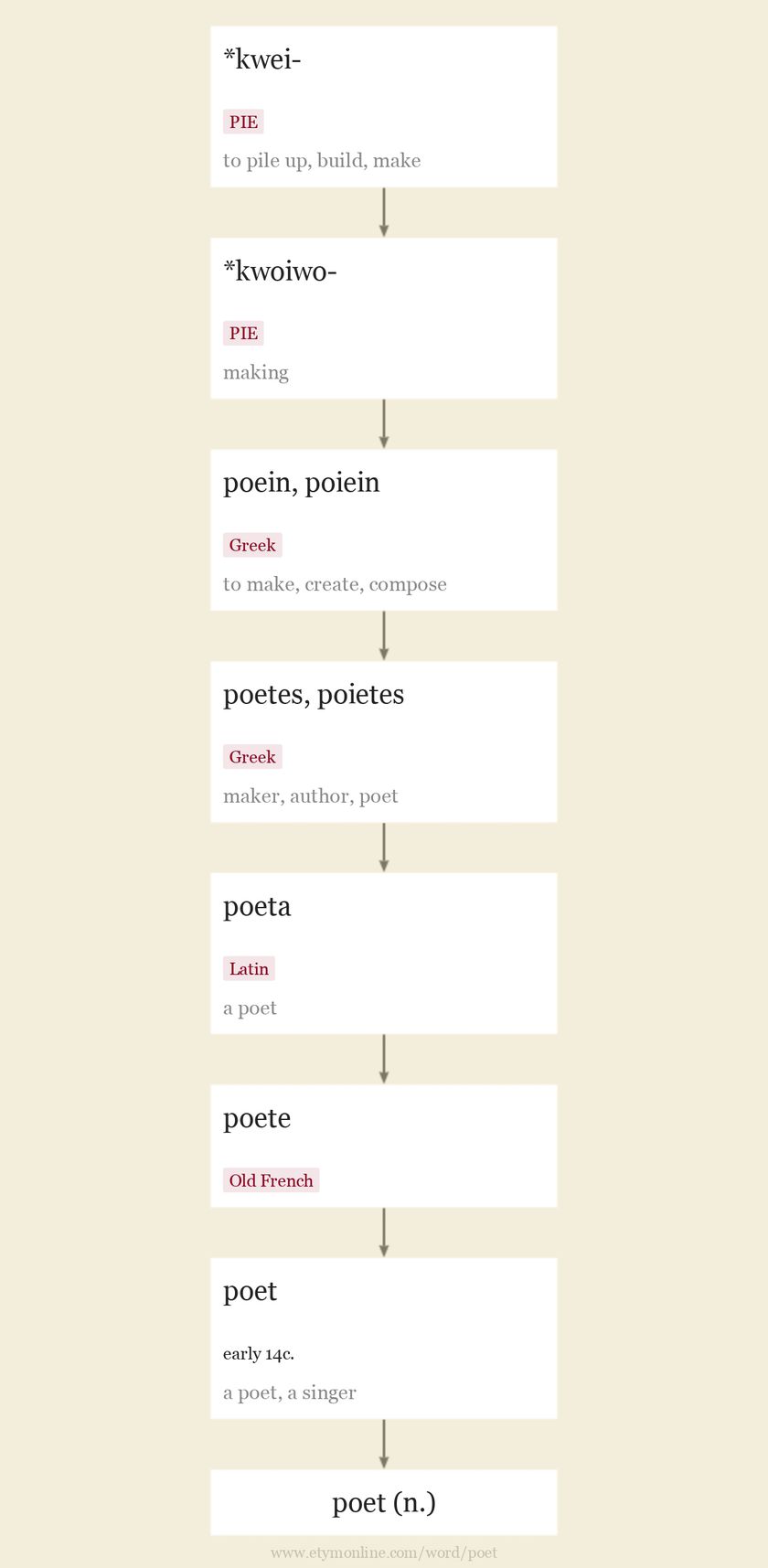poet (n.)
"诗人是一位拥有想象力、创造力和对应辞藻的人,通常但不必要地以韵律形式表达" [《世纪大词典》, 1895]。14世纪初,指“诗人,韵文作品的作者; 精通诗歌创作艺术; 歌唱家”(公元1200年作为姓氏),源自古法语 poete(12世纪,现代法语 poète),直接源自拉丁文 poeta “诗人”,源自希腊语 poētēs “制造者、创作者、诗人,”是 poiētēs 的一种变体,来自 poein 、poiein 的“制造、创造、作曲”。这是从 PIE *kwoiwo- “制造”中重建的[Watkins],源自根源 *kwei- “堆积、建造、制造”(源头还包括梵语 cinoti “堆积、积累”,古斯拉夫语 činu “行为、行动、命令”)。
它取代了古英语 scop(在 scoff 中仍有存留)。在14世纪,与古典语言一样,被用来指代所有文学作品的作者或作曲家。在16世纪至17世纪,通常被翻译为 maker 。
Poète maudit,“未被同时代人充分欣赏的诗人”,字面意思是“被诅咒的诗人”,出现于1930年,源于法语(1884年,Verlaine)。有关 poet laureate,请参见 laureate。
"Communication" will not explain poetry. I will not say that there is not always some varying degree of communication in poetry, or that poetry could exist without any communication taking place. There is room for very great individual variation in the motives of equally good individual poets; and we have the assurance of Coleridge, with the approval of Mr. Housman, that "poetry gives most pleasure when only generally and not perfectly understood." [T.S. Eliot, "The Use of Poetry and the Use of Criticism"]
“沟通”不能解释诗歌。我不会说在诗歌中没有始终如一的沟通程度,或者说诗歌可以在没有任何沟通发生的情况下存在。对于同样好的个人诗歌家的动机,有很大的个体差异; 我们有了柯勒律治的保证,并得到了豪兹曼先生的赞同,即“诗歌只有在被普遍理解而不是完全理解时才能带来最大的快乐。”[T.S.艾略特,“诗的用途和批评的用途”]
最早记录年份: 1895
